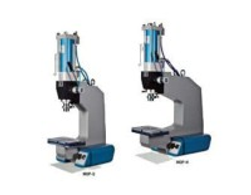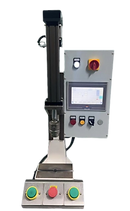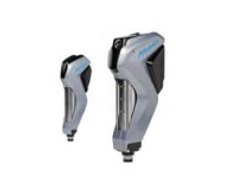- changdeliequip
- Jul 22, 2024
- 3 min read

When sourcing hand press machines, negotiating the best deals with suppliers is crucial for ensuring you get quality equipment at a competitive price. Whether you're a seasoned professional or new to the industry, mastering the art of negotiation can make a significant difference in your business's bottom line. This comprehensive guide will walk you through the strategies and tips to effectively negotiate with hand press suppliers and secure the best deals possible.
Understanding Your Needs
Before you even start negotiating, it's essential to have a clear understanding of your specific needs. This means knowing exactly what type of hand press machine you require, your required volume, and your budget. Take the time to thoroughly research the various types of hand press machines available and their specific applications. Knowing your detailed requirements will give you a strong foundation for your negotiations.
Research Potential Suppliers
You need to identify potential suppliers that meet your criteria to negotiate effectively. Start by creating a list of reputable suppliers in your industry. Look for reviews, testimonials, and case studies to gauge the reliability and quality of products. Comparing multiple suppliers will give you leverage in negotiations and help you understand the market standards.
Preparing for Negotiation
Preparation is vital to successful negotiation. Equip yourself with as much information as possible about the suppliers you're considering. This includes understanding their pricing structure, terms of service, delivery timelines, and after-sales support. Being well-informed will allow you to ask the right questions and identify areas where you can negotiate better terms.
Building a Relationship
Establishing a good relationship with your supplier is crucial. Start by communicating clearly and professionally. Show genuine interest in their business and products. Building rapport can create a positive atmosphere for negotiation and make the supplier more willing to offer you better deals. Trust and mutual respect are the cornerstones of successful business relationships.
Setting Clear Objectives
Define your negotiation objectives clearly. Determine what aspects are most important to you, such as price, quality, delivery time, or payment terms. Having a clear set of priorities will help you stay focused during the negotiation process and avoid getting sidetracked.
Understanding Supplier Constraints
While pushing for the best deal is essential, it's equally important to understand your supplier's limitations and constraints. Knowing what is feasible for them will help you make more realistic requests and avoid unnecessary friction. This can also open up opportunities for creative solutions that benefit both parties.
Starting the Negotiation
When you begin the negotiation, start with a positive and collaborative tone. Present your needs and expectations clearly and be open to hearing the supplier's perspective. It's important to listen actively and show that you value their input. This approach can help in finding common ground more quickly.
Leveraging Your Position
Use the information you've gathered to your advantage. Highlight your knowledge of the market and compare offers from different suppliers. If you have a history of large orders or long-term partnerships, use this as leverage to negotiate better terms. Suppliers are more likely to offer discounts or additional benefits to clients who promise repeat business.
Discussing Price and Terms
Price is often the primary focus of negotiations, but other essential terms should not be overlooked. Discuss payment terms, delivery schedules, warranties, and after-sales support. Be firm but fair in your requests, and be ready to make concessions in areas less critical to your needs.
Asking for Discounts and Extras
Don't hesitate to ask for discounts or additional perks. Suppliers may offer bulk purchase discounts, extended warranties, or faster delivery times to secure your business. Be specific in your requests and explain how these concessions will benefit your business relationship.
Closing the Deal
Once you've reached an agreement, summarize the key points to ensure no misunderstanding. Get everything in writing and review the contract thoroughly before signing. A clear and detailed agreement will help prevent future disputes and solidify your negotiations.
Building a Long-Term Relationship
Negotiation doesn't mean the deal is signed. Maintaining a good relationship with your supplier is crucial for long-term success. Keep the lines of communication open, provide feedback, and address any issues promptly. A robust and ongoing relationship can lead to better deals and more collaboration in the future.
Conclusion
Negotiating the best deals with hand press suppliers requires preparation, communication, and strategic thinking. By understanding your needs, researching potential suppliers, building strong relationships, and being transparent about your objectives, you can secure the best possible terms for your business. Remember, effective negotiation is not just about getting the lowest price; it's about creating value and building partnerships to help your business thrive. With these tips and strategies, you can negotiate confidently and successfully with hand-press suppliers.




